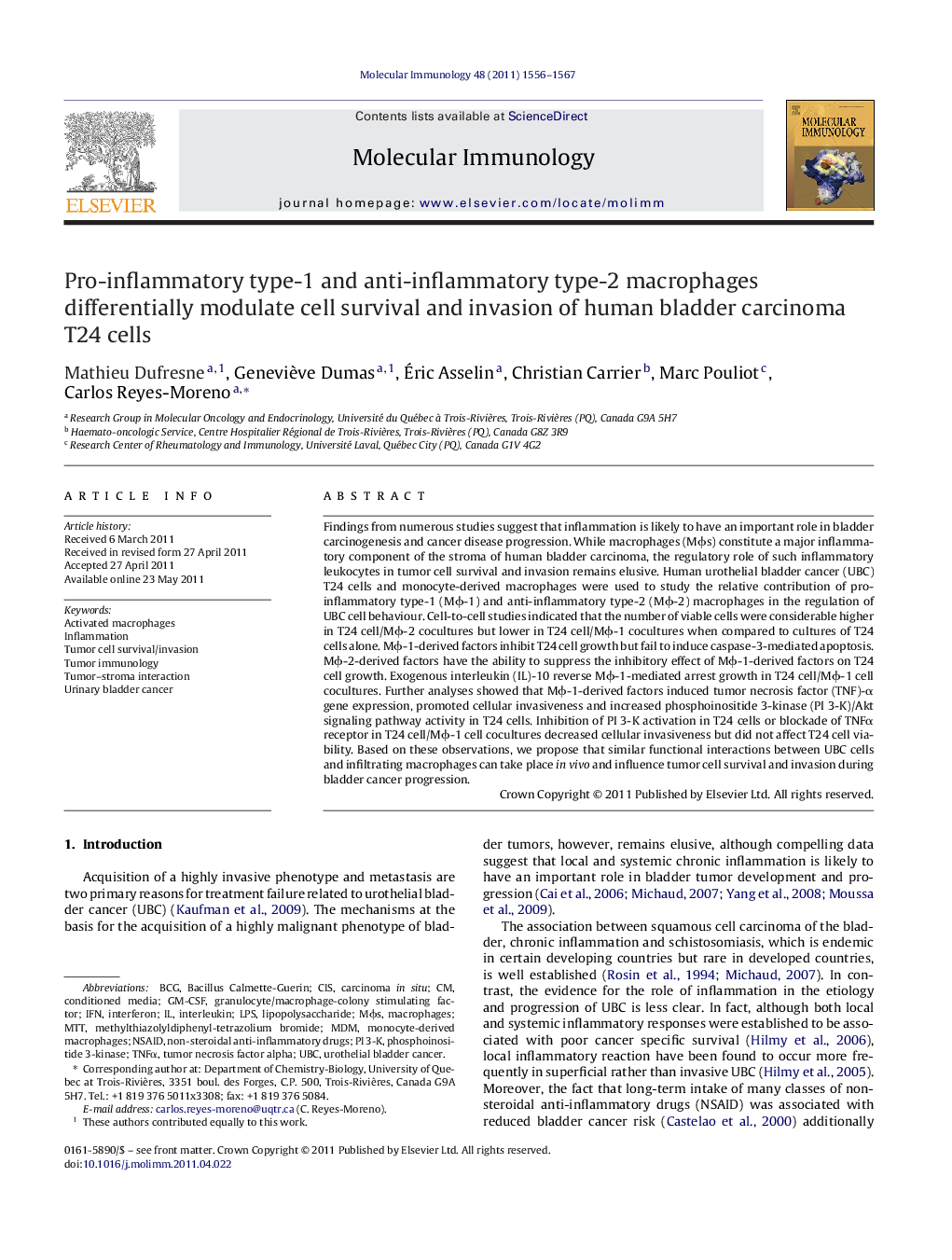| کد مقاله | کد نشریه | سال انتشار | مقاله انگلیسی | نسخه تمام متن |
|---|---|---|---|---|
| 2831245 | 1570736 | 2011 | 12 صفحه PDF | دانلود رایگان |

Findings from numerous studies suggest that inflammation is likely to have an important role in bladder carcinogenesis and cancer disease progression. While macrophages (Mϕs) constitute a major inflammatory component of the stroma of human bladder carcinoma, the regulatory role of such inflammatory leukocytes in tumor cell survival and invasion remains elusive. Human urothelial bladder cancer (UBC) T24 cells and monocyte-derived macrophages were used to study the relative contribution of pro-inflammatory type-1 (Mϕ-1) and anti-inflammatory type-2 (Mϕ-2) macrophages in the regulation of UBC cell behaviour. Cell-to-cell studies indicated that the number of viable cells were considerable higher in T24 cell/Mϕ-2 cocultures but lower in T24 cell/Mϕ-1 cocultures when compared to cultures of T24 cells alone. Mϕ-1-derived factors inhibit T24 cell growth but fail to induce caspase-3-mediated apoptosis. Mϕ-2-derived factors have the ability to suppress the inhibitory effect of Mϕ-1-derived factors on T24 cell growth. Exogenous interleukin (IL)-10 reverse Mϕ-1-mediated arrest growth in T24 cell/Mϕ-1 cell cocultures. Further analyses showed that Mϕ-1-derived factors induced tumor necrosis factor (TNF)-α gene expression, promoted cellular invasiveness and increased phosphoinositide 3-kinase (PI 3-K)/Akt signaling pathway activity in T24 cells. Inhibition of PI 3-K activation in T24 cells or blockade of TNFα receptor in T24 cell/Mϕ-1 cell cocultures decreased cellular invasiveness but did not affect T24 cell viability. Based on these observations, we propose that similar functional interactions between UBC cells and infiltrating macrophages can take place in vivo and influence tumor cell survival and invasion during bladder cancer progression.
► Type-1 macrophages increases while type-2 decreases bladder tumor cell proliferation.
► Type-2 macrophages and IL-10 protect tumor cell via type-1 macrophages inactivation.
► Type-1 macrophages induces tumor cell pro-inflammatory gene expression and invasion.
► TNFalpha mediate type-1 macrophage-induced invasion in tumor cells.
► PI3K/Akt activation is required but not sufficient to enhance tumor cell invasiveness.
Journal: Molecular Immunology - Volume 48, Issues 12–13, July 2011, Pages 1556–1567